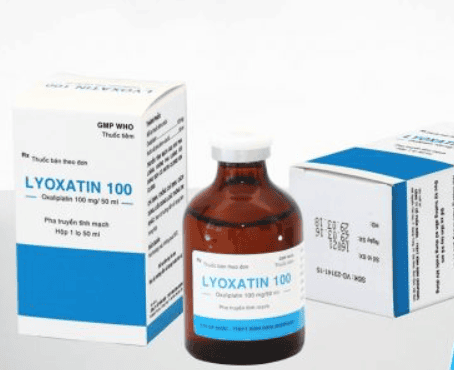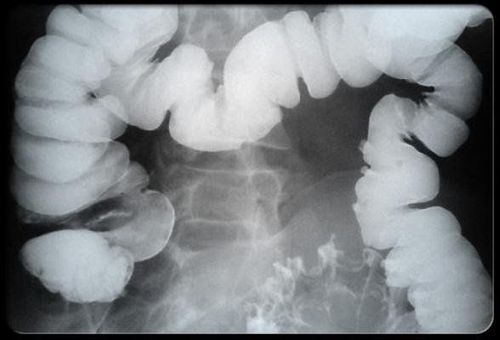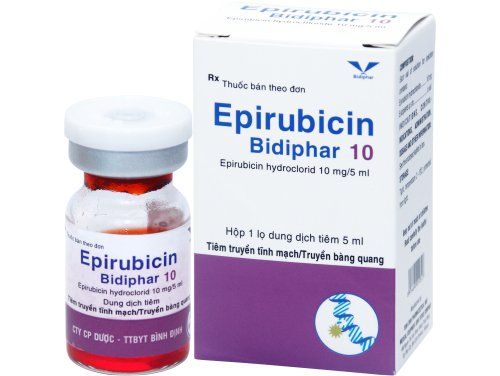This is an automatically translated article.
Decapinol contains the active ingredient capecitabine, which is indicated in the treatment of breast cancer, colon cancer and rectal cancer. The following article will provide readers with information about the uses, dosage and notes when using Decapinol.1. What is Decapinol?
Decapinol contains the active ingredient capecitabine, a fluoropyrimidine carbamate derivative that is prepared as an oral medication. This is a tumor-activated cytotoxic drug that has a selective effect on the tumor. The drug's mechanism of action is to slow or stop the growth of cancer cells and reduce tumor size.
2. Uses of the drug Decapinol
Decapinol is indicated in the following cases:
Treatment of colon cancer after surgery, rectal cancer or metastatic colon cancer. Treatment of metastatic breast cancer (usually used in combination with Docetaxel). Treatment of breast cancer that has spread and has not improved after treatment with other drugs such as Paclitaxel, Adriamycin, and Doxorubicin. The patient was resistant to the drug but during the treatment progressed towards remission. The breast cancer patient was stabilized with anthracycline but relapsed within 6 months.
3. Contraindications of the drug Decapinol
Do not use Decapinol in the following cases:
Patients with hypersensitivity to capecitabine, 5-fluorouracil or to any ingredient of the drug. Patients with DPD (dihydropyrimidine dehydrogenase) deficiency. Patients with renal impairment have a clearance of less than 30 ml/min. Patients with severe liver failure. Women who are pregnant and breastfeeding. The patient has severe thrombocytopenia, neutropenia, and lymphocytopenia.
4. Dosage and how to take Decapinol
How to use: Decapinol is taken orally within 30 minutes after eating.
Dosage: Dosage depends on the health situation and body area of each patient. It is necessary to closely monitor the patient during treatment to adjust the appropriate dose to avoid toxicity.
Standard dose in the treatment of breast cancer, colon cancer and rectal cancer: The recommended dose of Decapinol is 1250mg/m2 of skin/time x 2 times/day (morning-evening), orally for 2 consecutive weeks. and take a break from taking the drug for 1 week (regarded as a 3-week treatment cycle), then continue taking it if prescribed by the doctor. In colon cancer patients, a dose of 1250 mg/m2 orally twice daily for 2 consecutive weeks is recommended, with a 1-week break. The total duration of treatment is 6 months, equivalent to 8 cycles.
Dosage for special populations:
Patients with severe renal impairment: Patients with renal impairment with a clearance of more than 50ml/min do not need to adjust the dose from baseline. If the clearance is less than 50 ml/min, the dose should be reduced to 75% of the initial dose. Elderly patients: There are currently insufficient data to determine the correct dosage for the elderly. Physicians should monitor the effects, clinical manifestations and toxicity of Decapinol in the elderly to determine the appropriate dose.
5. Decapinol side effects
The most common side effects when using Decapinol are diarrhea, nausea, vomiting, loss of appetite, constipation, weakness, muscle pain, back pain, dizziness, insomnia, dry or itchy skin and syndrome limbs (erythema, peeling skin of hands and feet).
Patients can make dietary and lifestyle changes, such as eating smaller meals or limiting activity, to alleviate these symptoms. If the above symptoms still do not improve and worsen, stop taking Decapinol and go to medical facilities for advice. Occasionally patients may experience severe symptoms such as chest pain, fainting, jaw pain or left arm pain. Note that patients should notify their doctor if they have unusual symptoms such as abdominal pain, stomach pain, unusual bruising or bleeding, extreme fatigue, mental/mood changes, ankle swelling. / feet, vision changes, trouble breathing, change in the amount of urine, dark urine, yellowing eyes/skin, irregular heartbeat.
6. Notes when using Decapinol
Before taking Capecitabine, tell your doctor or pharmacist if you are allergic to Capecitabine or 5-fluorouracil or to other medications. Patients with severe kidney disease, blood disorders, heart problems, liver disease need to be cautious when taking the drug. Patients with dihydropyrimidine dehydrogenase (DPD) deficiency are at increased risk of severe early-onset, even life-threatening toxicity and death. Toxicity may include mucositis, stomatitis, diarrhea, leukopenia, and neurotoxicity. Patients with partial DPD activity are also at risk for severe, life-threatening toxicity. Decapinol can make patients more sensitive to the sun, so it is important to avoid prolonged sun exposure, use effective sunscreen, and wear protective clothing outdoors. Risk of kidney failure: The drug can cause dehydration leading to acute kidney failure (possibly fatal). Concomitant use with drugs that are nephrotoxic and dysfunctional may increase the risk of renal failure. Bone marrow suppression: The drug can cause bone marrow suppression, hematologic toxicity, especially when used in combination. Cardiotoxicity: Cardiotoxicity has been observed with capecitabine, including myocardial infarction, ischemia, angina, arrhythmia, heart failure, and sudden death. These side effects may be more common in patients with a history of coronary artery disease. Skin Toxicity: Stevens-Johnson syndrome and toxic epidermal necrolysis (TEN) have been reported in some patients receiving Decapinol. Decapinol should be used with caution in the elderly because patients may be more sensitive to its side effects, especially nausea, vomiting and diarrhea.
7. Decapinol drug interactions
Some interactions to pay attention to during the use of Decapinol include:
Decapinol may affect the metabolism and elimination of some of the following drugs: anticoagulants (Warfarin), Fosphenytoin, Phenytoin, Metronidazole, Tinidazole, folic acid (including multivitamins with folic acid) by affecting liver enzymes. Therefore, patients should inform their doctor before taking Capecitabine. If the patient is taking aluminum or magnesium-containing antacids, Capecitabine should be taken 2 hours before or after the antacid as these drugs may alter the absorption of Capecitabine. Dipyrone: May enhance bone marrow suppression side effects, risk of agranulocytosis and thrombocytopenia. Decapinol must not be combined with this medicine. Concomitant use of proton pump inhibitors and capecitabine may alter the solubility and absorption of capecitabine by increasing gastric pH. In summary, Decapinol is a cytotoxic drug used in the treatment of several types of cancer. During the use of the drug, patients should inform their doctor if they experience unusual symptoms such as abdominal pain, unusual bruising or bleeding, mental/mood changes, swelling ankles/feet , shortness of breath, change in the amount of urine,...
Please dial HOTLINE for more information or register for an appointment HERE. Download MyVinmec app to make appointments faster and to manage your bookings easily.













